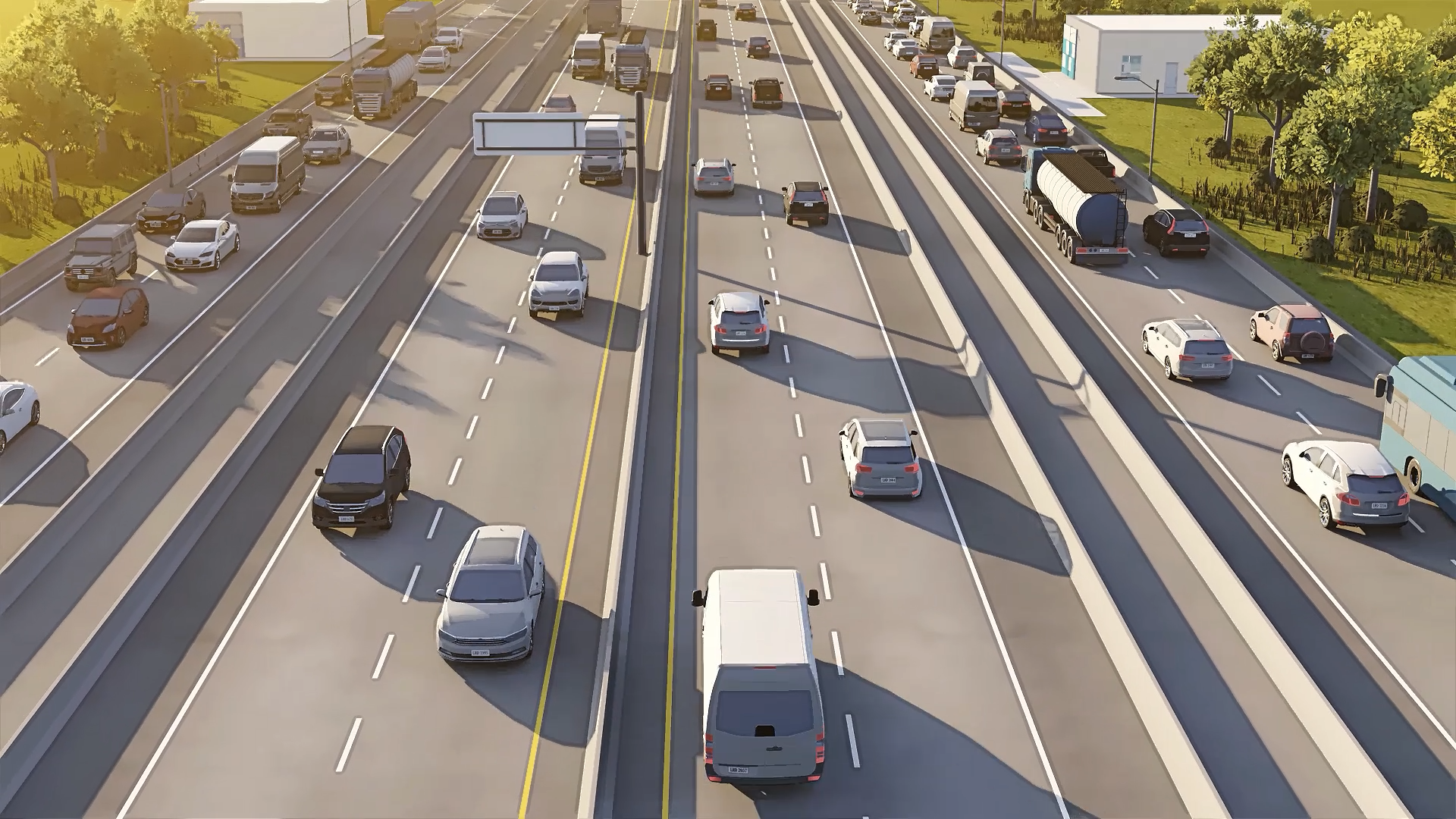

The Future Of Smart
Roads
Smart roads or connected corridors are roadways built or fitted with advanced features, including sensors that monitor and report real-time road conditions and communication transmitters that allow information and services to be provided to vehicles, as well as special physical enhancements and digital twins to improve safety for all road users and to accelerate the adoption of connected, automated vehicles (including public transit), ensuring they deliver their promised benefits during the transition to a fully autonomous future.
What Are AIVIA Connected Corridors?
Ferrovial and Cintra, together with top-tier global tech firms, are working on AIVIA, a connected smart road initiative which is helping to manage this transition – maximizing the utility CAVs can bring while providing added value for all road users.
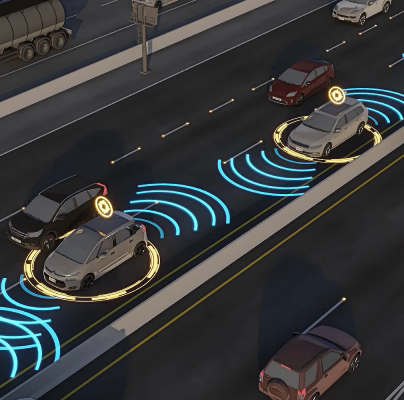
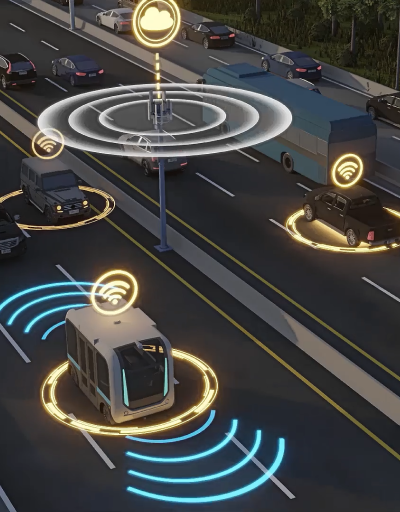
AIVIA aims to create high-speed road infrastructure by developing the blueprint of the sustainable infrastructure of the future for mixed traffic, using cutting edge technology to make travel safer, journey times more reliable and adding value to highway users through enhanced connectivity and the services that come with it.
We are now moving effectively from a vision – designs, thinking and analysis – towards concrete projects in Virginia and Texas, which will be launched operationally in mid 2023.
Technology trials on those roads started Summer 2021 – beginning with high visibility road markings and dynamic signage & lighting, new high-fidelity sensor technology, to be followed by full connectivity coverage for real-time critical safety messaging and additional services to drivers and their cars.
AIVIA Benefits
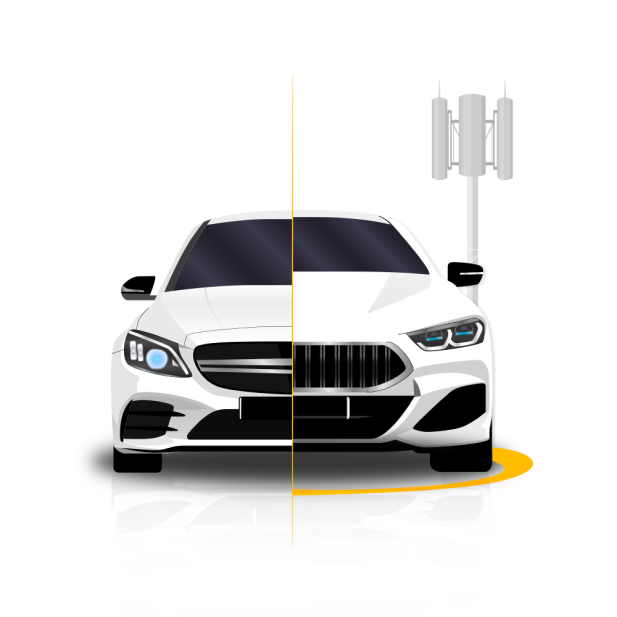
Safety
Cybersecure comms, CAVs for all situations, less secondary incidents
Sustainability
Less congestion, innovation, economic productivity
Digitization
Automated data-driven decision making
Better Mobility
More, better, faster, safer trips
User Experience
Enjoyable transport, new services (IoT,etc)

What Do Automated Vehicles Have To Do With Smart Roads?
Today, highly automated vehicles comprise only a tiny proportion of vehicles on the road, however by 2030 more advanced automated and autonomous vehicles will make up 50% or more of all vehicles sold. The likelihood is also that in the same period 100% of vehicles operating on our roads will be connected and delivering advanced digital services to the vehicle, driver and passengers.
It will however be decades before every vehicle is able to fully operate autonomously in all environments and conditions. During this transition period and beyond – connected and orchestrated infrastructure will play a fundamental role in maximizing the safety, utility and value of connected automated vehicles (CAVs) to all stakeholders and specifically in complex high-speed, mixed traffic environments.
But there are also many benefits that can be achieved in the next 5-10 years that will enhance the driving experience for users while making the most of current vehicle capabilities. This orchestration of mixed traffic promises to improve the overall safety of our roads, optimize the capacity of our road network while providing safe conditions under which all levels of connected vehicles can travel more efficiently.
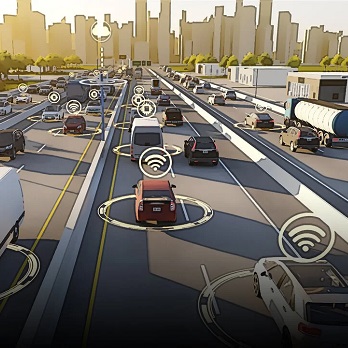
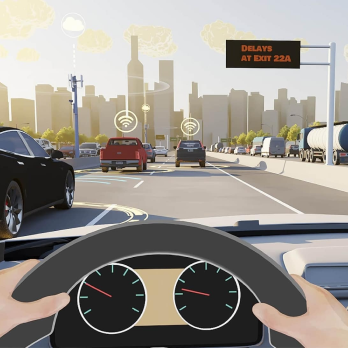
Who Is Building the Smart Roads of the Future?
From infrastructure operators and DOT agencies to technology and communications companies – all of these players can and should play a role in ensuring safe operation of ALL types of vehicles under ALL conditions on the smart roads of the future.
LEARN MORE ABOUTAIVIA’S ECOSYSTEM OF PARTNERS
Why Choose Us
YEARS OF EXPERIENCE
Trusted Partner
Development and operating transportation infrastructure across the world.USERS
Domain Knowledge
Across 1,000 miles of highways under management and 4 airports.MANAGED INVESTMENT
Innovation Driven
A commitment to the highest level of safety, operational excellence and innovation.AVERAGE ANNUAL DAILY TRAFFIC